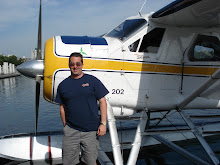
As a cadet Whittle had written a thesis arguing that planes would need to fly at high altitudes, where air resistance is much lower, in order to achieve long ranges and high speeds. Piston engines and propellers were unsuitable for this purpose, so he concluded that rocket propulsion or gas turbines driving propellers would be required: jet propulsion was not in his thinking at this stage. However, by October 1929, Whittle had considered using a fan enclosed in the fuselage to generate a fast flow of air to propel a plane at high altitude. A piston engine would use too much fuel, so he thought of using a gas turbine. After the Air Ministry turned him down, he patented his idea himself.
In 1935 Whittle secured financial backing and, with RAF approval, Power Jets Ltd was formed. They began constructing a test engine in July 1936, but it proved inconclusive. Whittle concluded that a complete rebuild was required, but lacked the necessary finances. Protracted negotiations with the Air Ministry followed and the project was secured in 1940. By April 1941 the engine was ready for tests. The first flight was made on 15 May 1941. By October the Americans had heard of the project and asked for the details and an engine. A Power Jets team and the engine were flown to Washington to enable General Electric to examine it and begin construction. The Americans worked quickly and their XP-59A Aircomet was airborne in October 1942, some time before the British Meteor, which became operational in 1944.
The jet engine proved to be a winner, particularly in America where the technology was enthusiastically embraced. Whittle retired from the RAF in 1948 with the rank of air commodore. He was knighted in 1976 and went to work in the USA shortly afterwards, becoming a research professor at the US Naval Academy at Annapolis. Whittle died on 9 August 1996.


